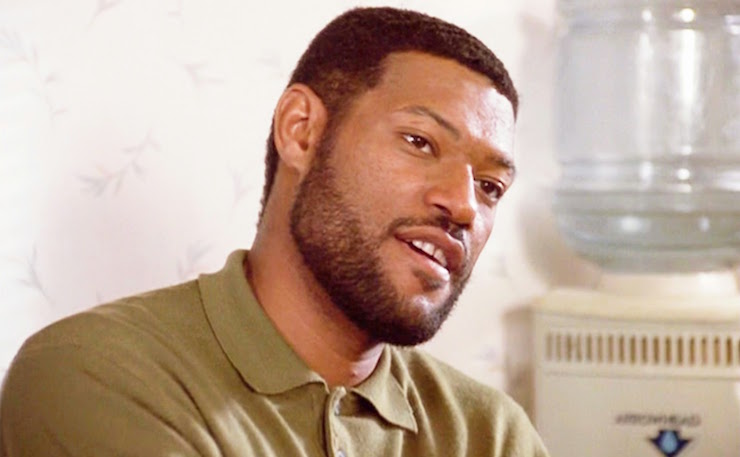When you consider the government’s own material on de-radicalisation, a recent police raid to prevent an alleged terror plot starts to look like less of a success, writes Michael Brull.
Police have arrested a 16-year-old for allegedly planning a terrorist act for Anzac Day. They and politicians have hailed this as a success, but I think it can more properly be considered as a failure. We won’t know how serious this failure is until there are proper investigations. In the meanwhile, we can identify a few issues.
Firstly: the outcome, which is already draconian, and will be unlikely to help in the larger battle of addressing jihadi terrorism in Australia. This is because ultimately, we need to work with Muslim communities. This case makes such cooperation less likely, and the Muslim communities are already sceptical of the government and counter-terrorism police. In this case, a de-radicalisation program clearly failed. We may not be able to identify all aspects of why that is, but if this case is ever looked into, we can predict some elements of that failure. Ultimately, protection from terrorist attacks won’t come from heavy-handed policing, but from community empowerment, and partnerships with those communities. This requires a different approach from that embraced by police so far.
The Draconian Penalty For Pre-Crime
The young man in question faces life imprisonment for his offence. The offence relates to an alleged conversation he had with another person. The teenager, in the rendering of Rachel Olding at Fairfax, allegedly “mentioned sourcing a gun and Anzac Day services.” As noted by Olding, he “didn’t mention a specific location or time and he hadn’t managed to source the gun, but the conversation was enough to prompt police to act immediately.” Police raided his house and didn’t find any weapons.
Since the arrest, Michael Safi has reported at the Guardian that the teenager was actually talking to the police, as part of a sting operation. Thus, the threat posed by this teenager was probably minor, given that he was plotting with the police. He has also been involved in a de-radicalisation program since May last year.
If we are allowed to read through the conversations between the teenager and the police, we can decide whether the teenager was a danger. At this point in time, it is possible that he was induced into making a comment that sounded threatening by the dynamic of his conversation with the undercover police officer or officers he was speaking to. It is possible that the teenager was seriously determined to acquire a gun and shoot people at an Anzac Day event. Considering that Anzac Day had almost arrived and he hadn’t acquired a gun, it is also possible that he had no intention to do anything other than impress someone he thought was a jihadi on the other end of the reportedly encrypted conversation.
For this threat, the teenager faces life imprisonment. The police know what elements are required to charge someone with an offence. They have been watching this teenager for a year. At this point in time, there is no sign that the teenager made any efforts to acquire a gun, and there is no sign that as part of their sting the police sought to test whether the teenager actually wanted a gun. The fact that they arrested him at such an early stage of the alleged process, when it is hard to imagine that they faced any real threat from the teenager, suggests they were eager to pounce, eager to convict, and had little faith in or respect for the de-radicalisation program.
The boy in question is 16-years-old. Based on a threat, which may have been induced, he may spend the rest of his life in prison.
Would You Send A Friend To A De-Radicalisation Program?

The boy in question was part of a de-radicalisation program for a year. The upshot of this program appears to have been close attention by the police, who had an ongoing desire for conviction.
The problem with this approach is that it will make de-radicalisation programs harder to sell, and cooperation with the police and counter-terrorism official less likely. Suppose, for example, that your friend, or your nephew, was saying some extreme stuff. He thought that America brought September 11 on itself, and the media was misrepresenting ISIS, who were just standing up for Islam. You would naturally be worried about him, and at the least, would try to persuade him as to why his views were wrong.
But would you want to bring his extremist views to the attention of the police? Knowing that even vague sounding threats, with no meaningful connection to actual planning of a material attack, could result in that person going to prison for the rest of his life? If it was someone you cared about, someone you loved, might you hesitate before making that kind of call? Might you wait to see if you could find some stronger evidence to support those concerns?
And this hesitation wouldn’t just relate to the police. Why would you chat to someone from a de-radicalisation program, if you thought they’d just wind up reporting it to the police? And if communal organisations had these links, you might not want to chat with them either.
The cost of a draconian approach is that police lose their eyes and ears in communities. It may work out fine with a naive and isolated 16-year-old allegedly dumb enough to plot an attack with the police. In the event of a more sophisticated operator, police may rue the bridges they burned in their determination to put away a teenager with zero training or ability to plan or engage in a more serious attack.
Communities Already Have Their Doubts
The government’s own paper on countering violent extremism – launched only half a year ago by the Minister Assisting the Prime Minister on Counter-Terrorism – argued that for people who have been radicalised there needs to be a three-pronged response. As a last resort, a response should include a behavioural element – that is, getting legal authorities involved. Before that, it advocated a social and ideological response.
The social response means reconnecting the individual with people outside of the extreme fanatics that may foster and encourage their worldview. It encourages people like trusted adults, family members, and social workers to fill this role. The ideological element involves finding someone with appropriate credibility to advocate for a different way of looking at the world, even if it just means changing violent extremism into non-violent extremism.
For this to work, the de-radicalisation process needs those trusted adults, and advocates with credibility within the community. For counter-terrorism police to pursue this option successfully, they need strong connections within the community.
The evidence that they have those kind of connections is not very strong.
Michael Safi reported in the Guardian last year that there were creative programs from within Muslim communities that were trying to promote social cohesion. They had no connection to counter-terrorism and de-radicalisation. On the other hand, there was the “Living Safe Together” program, launched in August 2014. It had a budget of $13.4 million. Safi reports that “only a small proportion” of that budget was spent, as “Most major Muslim organisations declined to apply for the $50,000 funding offered for community programs ‘to help radicalised individuals’.” Apparently, few also signed up for the countering violent extremism services established in 2015. Hass Dellal, executive director of the Australian Multicultural Foundation, said communal organisations “shunned them”.
That is, if we assume the government’s own counter-terrorism paper should be taken seriously, we could predict its de-radicalisation programs would go nowhere. Clark Jones, founder of the Australian Intervention Support Hub, has acknowledged this point. He said that “The government is certainly on the wrong track… The fundamental principles of community relations and strong community partnerships is flawed because, at the moment, those relations have not been built and, in many cases, they have been broken for various reasons. Without community engagement, we’re right up against it.” He explained that “Because of the lack of any connection to community or social issues, these programs lack all of the nuances required to address the problem.” He said the government should release its control of programs, and let them be community led.
The spokeswoman for Michael Keenan, the Minister Assisting the Prime Minister on Counter-Terrorism, claimed that the “professional and community sectors are crucial partners” in these programs, which are based on “research and international best practice”. It is hard to take these claims very seriously.
Hand Picked ‘Leaders’ May Not Be The Best Ones

The ABC observes that the teenager was subject to a “secret and intensive new intervention program”, which was run by the Australian Federal Police, NSW Police and Victorian Police. It included “mentors, psychologists, religious leaders, teachers”, and a work placement. Thus, the teenager was given a gym membership, and an electrician apprenticeship. He went to a mosque where there were sermons in English with his father. Presumably, the hope was that all these adults and all this attention would steer him onto a different path. He was put onto this program after police found him communicating online with Neil Prakash, a recruiter for ISIS.
This kind of diversion program isn’t a bad idea. However, there is a big difference between accepted communal figures talking to youth from within, and police imposing pre-screened “moderates” on the young and radical.
This point shouldn’t be hard to understand. Suppose you’re in school. You get caught with drugs, and get sent to the principal’s office. She is angry, but doesn’t expel you. To reform your behaviour and mindset, she decides that you should spend time with handpicked figures, chosen to provide responsible supervision and guidance.
As you have no choice in the matter, it makes a big difference what kind of people these are. If you respect them – if they’re, say, a universally loved school captain and teacher, then chatting with them about life might seem really cool. If, however, you have to spend an hour a week chatting with a nerdy suck-up the principal thinks is sufficiently well-behaved to say the right things, and some old strict teacher you hate, then nothing they say will get through to you, and you are unlikely to listen to them.
For anyone who needs this explained further, consult Boyz N The Hood (spoiler alert for this paragraph). Towards the end of the movie, a young black man called Ricky is shot dead. His friends, including Tre, decide they want to avenge Ricky. Tre goes to his home, only to be confronted by his father, Furious. Furious has done his best to raise him as a strong man. He has credibility with Tre and other youths, as he is candid, challenges power, and recognises the realities of life around them. Thus, when Furious demands Tre give him the gun, Tre eventually gives in (of course, Tre then sneaks out, but then he changes his mind again and decides against being involved in revenge murder).
The point is that there is a big difference between a respected leader, and an imposed figure. Someone vetted by the police and a right-wing, conservative government, which has been trashing Muslims for years, and developing rafts of harsh counter-terrorism laws that are only ever used against Muslims, may well appeal to the police and government. But they are less likely to have credibility within the Muslim community. If the only Muslim “leaders” who get support are those who are willing to read from every government script, who give and give and give, but never get to take, then those leaders will become increasingly isolated from the communities the government expects them to police on our behalf.
If the government and police want better results and better engagement, it will need to be more willing to work with those who have different political values and agendas. This will include those who don’t want to be on Team Australia, who are sick and tired of police harassment, who don’t like draconian anti-terrorism laws targeted at Muslims, and who hate Australian and Western foreign policy. The paradox for government counter-terrorism efforts is that “countering violent-extremism” may require facilitating that kind of agenda, the kind it would like to de-radicalise. Which may help explain why government engagement with Muslim organisations is so limited.
Police Can Never Stop Crime As Effectively As Community Expectations
Crime rates may occasionally be affected in some way by police actions, but the strongest influence is community standards. Most people recoil at murder and murderers, and so murder is relatively rare. However, other crimes do not strike Australians as particularly wrong, and so they are pervasive. For example, Australia topped the world in illegal downloads of the latest episode of Game of Thrones. If Australians thought those downloads were wrong, they would stop. Likewise with the many Australians who use illegal drugs.
If we are going to be safe from jihadi terrorism, it will not be because of this or that arrest or conviction. It will require prevention, which means active community support. The 16-year-old was arrested after a year of being monitored by the police, after a sting they set up. When police aren’t on the other end of the encrypted conversation, how will they know what is being said? They will need support from within communities. This will require building partnerships and collaboration. It will not involve cases like the 16-year-old currently facing life in prison.
Donate To New Matilda
New Matilda is a small, independent media outlet. We survive through reader contributions, and never losing a lawsuit. If you got something from this article, giving something back helps us to continue speaking truth to power. Every little bit counts.





